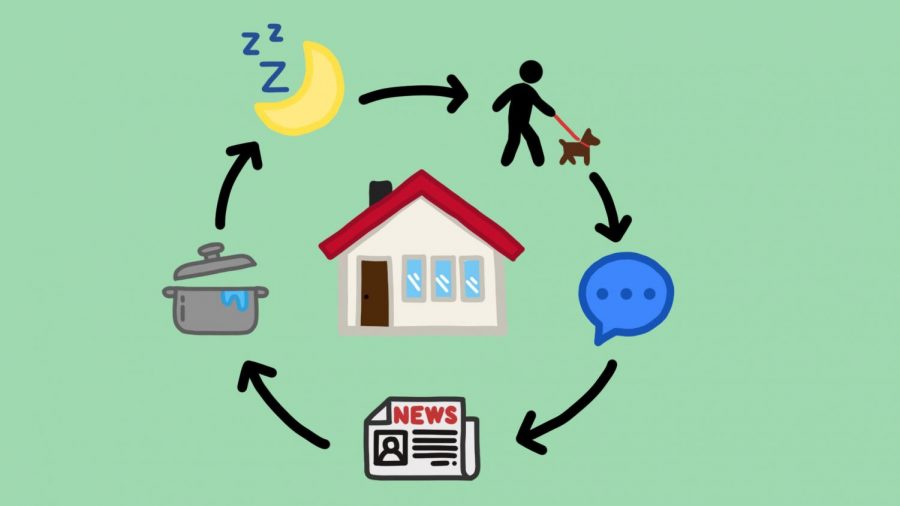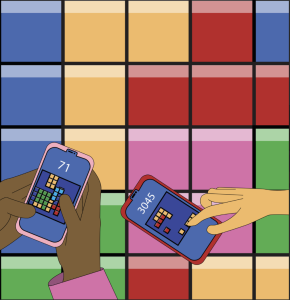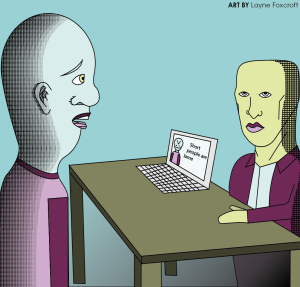How to maintain mental heath during self-isolation
As students are physically isolated in their homes for a prolonged amount of time, it can be difficult to maintain their mental health amidst uncertain times. However, Dispatch Reporter Anna Holme has shared the methods she has used, and that every student should use, to stay healthy and optimistic.
May 5, 2020
As a consequence of the practice of self-isolation and the enactment of Texas’s shelter-in-place order, the amount of people staying in their homes is at an unprecedented number. While some may think this is a relaxing opportunity, many others are concerned with the difficulties that come with this new reality, whether it be economic, social, or emotional issues. Teenagers, especially students, are even more vulnerable to these tensions because high school is such a transitional and pivotal point in their lives. The Centers for Disease Control and Prevention’s (CDC) website states that kids and teens “may respond more strongly to the stress of a crisis,” in this case the crisis being the proliferation of COVID-19. Students having to deal with both this, and their current online schoolwork, only compounds the pressures they are under. Regardless of all this chaos, there are some steps that everyone (especially students) can take to cope with these difficult times.
First and foremost, the most crucial thing for you to do at these times is to attend to your physiological needs before all else. This includes sleep, exercise, eating habits, and hydration. Sleeping is an extremely crucial component of mental health, and sources say that when teens get eight to ten hours of sleep per night, they avoid illness, an inability to focus, irritability, and become less prone to forming pimples. Try to set alarms for when you should be in bed, and when you should wake up, to stay consistent with your sleep schedule. And during the day, you should practice healthy lifestyles: such as eating well (and mindfully), drinking plenty of water, and fulfilling the lack of movement spent in public places by exercising. A good idea would be to cook new foods with the time you have and to challenge yourself by experimenting with healthy recipes. Try to prepare your workouts in advance, and do not give yourself an excuse to skip out on them: stay consistent. On the topic of consistency, this is a super important thing when you have less things to attend to, especially with students transitioning to online school. This brings me to my next important tip.
Try to create a routine. With being in isolation for so long, the days can seem to meld together. This can cause someone to fall into the habit of mindlessly performing actions with no conviction. Start to plan things in advance, by plotting designated time periods in which you work, eat, sleep, relax, exercize, etc. Make sure to stick to this routine, and use it as a replacement for the routine you may have had for school. This consistency gives you something to look forward to and something to plan in advance with. I have found that when I wake up and go to bed at strict times, and complete my work at designated times, it creates some normalcy in such an uncertain time.
Within these routines, try and accommodate for social activity. Do not lose touch with friends or family because of isolation. There are many resources to enable yourself to talk with others: such as FaceTime, Zoom, Skype, texting, and much more. Try to reach out to a friend you have not talked to in awhile, check in on your group chats, and check in on family members. Feeling lonely in isolation is a completely normal feeling, and while online connectivity is not always as satisfying as in-person interactions, it is better than nothing. So, when boredom hits, try your best to fill the time with a friend.
Even when there are times you are bored and have nothing to do, do not focus on things you cannot control. Overthinking is something that is common among students and teens. However, the term “what if,” is often damaging to mental health. It creates extreme and stressful scenarios, while actually providing no help to the situation. Take a break from watching the news or reading about COVID-19 updates, limit your time you spend focusing on pandemic-related content, stay in the moment, and distract yourself with things that bring you joy.
As a whole, staying positive in such pessimistic times can be difficult, but it is important to take care of yourself and help the people you care about. Maintaining proper mental health is especially crucial now as distractions are limited and people’s routines have been drastically changed. If you put in the effort and make sure you feel happy and healthy, the bleak nature of self-isolation will become much less prominent.










